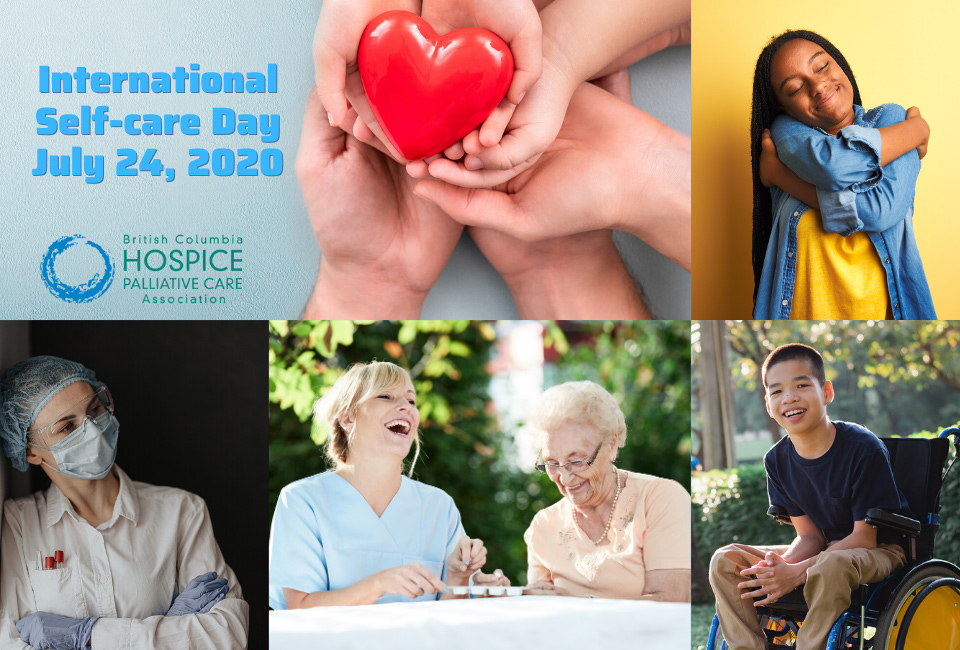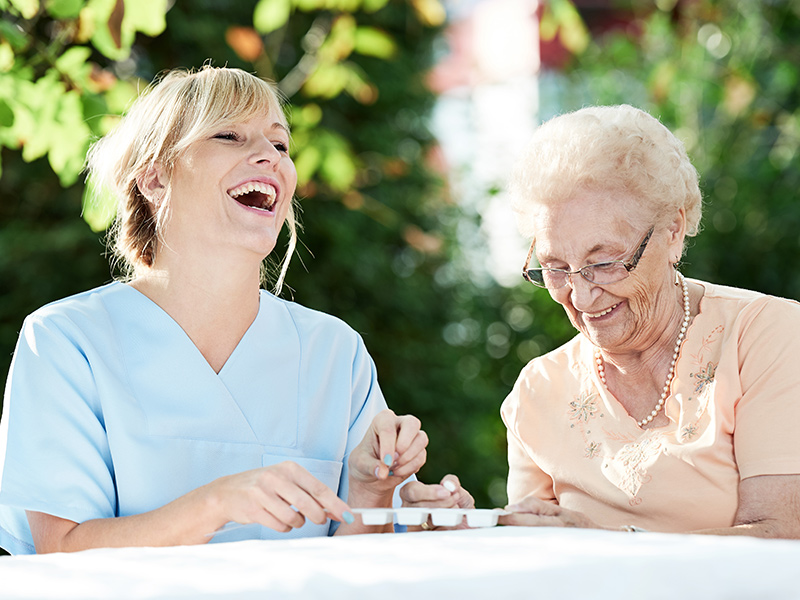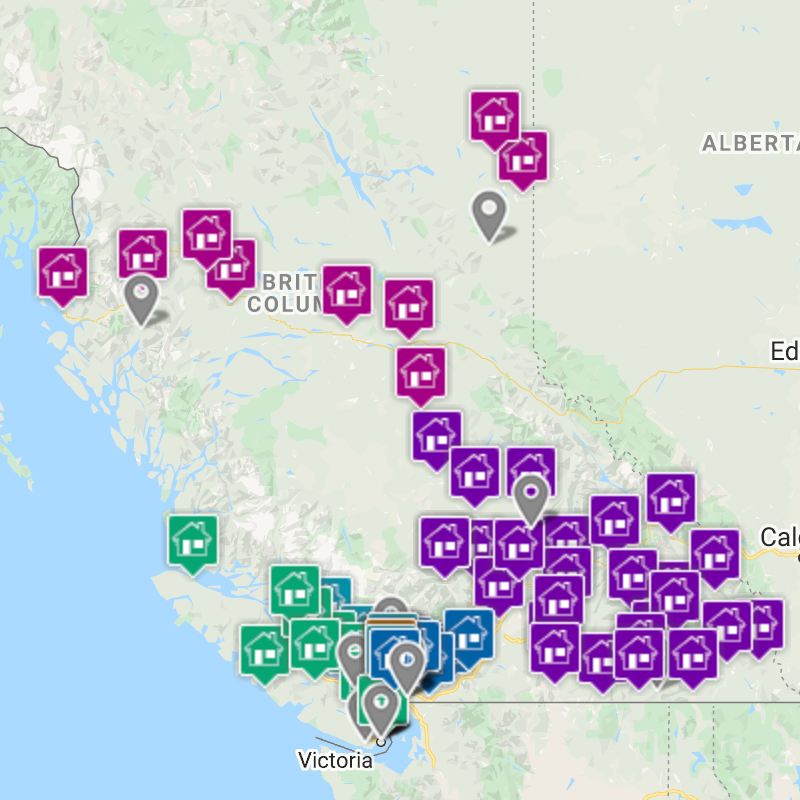INTERNATIONAL SELF-CARE DAY

INTERNATIONAL SELF-CARE DAY
JULY 24th, 2020
International Self-Care Day comes at a time when our community has all been impacted by the global pandemic in some way. British Columbia Hospice Palliative Care Association encourages frontline workers, caregivers and volunteers to acknowledge the importance of self-care to their own health, the community and the health care system.
- Health literacy
- Self-awareness
- Physical activity
- Healthy eating
- Risk avoidance
- Good hygiene
- Rational and responsible use of products and services
Self-care Ideas & Resources
Self-care for our Caregivers
Taking care of someone without the usual support or community programs can be overwhelming. Due to COVID-19 restrictions, caregivers are facing challenges contributed by isolation and lack or service accessibility. These challenges may bring on; emotional distress, depression, or anxiety. Recognizing that COVID-19 has increased a strain on our healthcare system, caregivers more than ever play an important role in service delivery to their loved ones.
As a caregiver you are doing the best that you can, and ensuring that your mental and physical self is cared for, is ever so important.
Useful self-care tips for our Caregivers:
- Have a backup caregiver or someone willing to help in case you become ill and need a mental break.
- Reach out to support services that provide assistance with household tasks such as shopping, transportation, meal preparation or virtual visitations.
- Do something unrelated to caregiving support, whenever you can.
Additional Resources
- Family Caregivers of BC
- 10 Things to Know about Grief
- Mental Health Resources
- Bereavement Helpline
Self-care for our Volunteers
Volunteers are essential to our communities and the delivery of services. In Hospice Palliative Care, volunteers are part of the care team and are an essential part of the provision of care within hospice support. Volunteering during a health crisis can be very stressful, and ensuring continued communication or asking any clarification to your volunteer manager would lead to a successful volunteering experience.
Useful self-care tips for our Volunteers:
- Set boundaries if you are feeling overwhelmed by the situation or your duties.
- Communicate with your volunteer manager if you are feeling demotivated or unengaged.
- Try to limit your time spent listening to or watching COVID-19 updates to avoid a negative impact on your mental health. Staying informed and appraised on all things COVID-19 is important. But too much can also be harmful to your well-being.
Additional Resources
Self-care for our Frontline Workers
Due to the innate nature of frontline workers, you tend to put the needs of others before your own. The intrinsic responsibility for saving lives and providing care is always at the forefront. However, your mental and emotional well-being are equally important in order to take care of others. Practicing self-care is extremely necessary and should not feel as self guilt or a selfish act.
Ongoing self-care and addressing stress during times of crisis and peak work loads are essential to reducing burn outs.
Useful self-care tips for our Frontline Workers:
- Self-monitoring your mental and physical health. This can be from mediation, spritual practises or eprhaps even yoga.
- Taking a break or requesting a Mental Health Day.
- Reaching out to peers, co-workers or perhaps senior management and discussing possibilities of having additional resources or innovative ways to support staff (and their families) during times of crisis.
Additional Resources
BC Hospice Palliative Care Societies are here to help.
Hospice societies provide services in grief, compassionate listening, bereavement, end of life, caregivers support, volunteers and frontline workers support and much more in the communities they serve. Please contact your community hospice for additional services and self-care supports.






